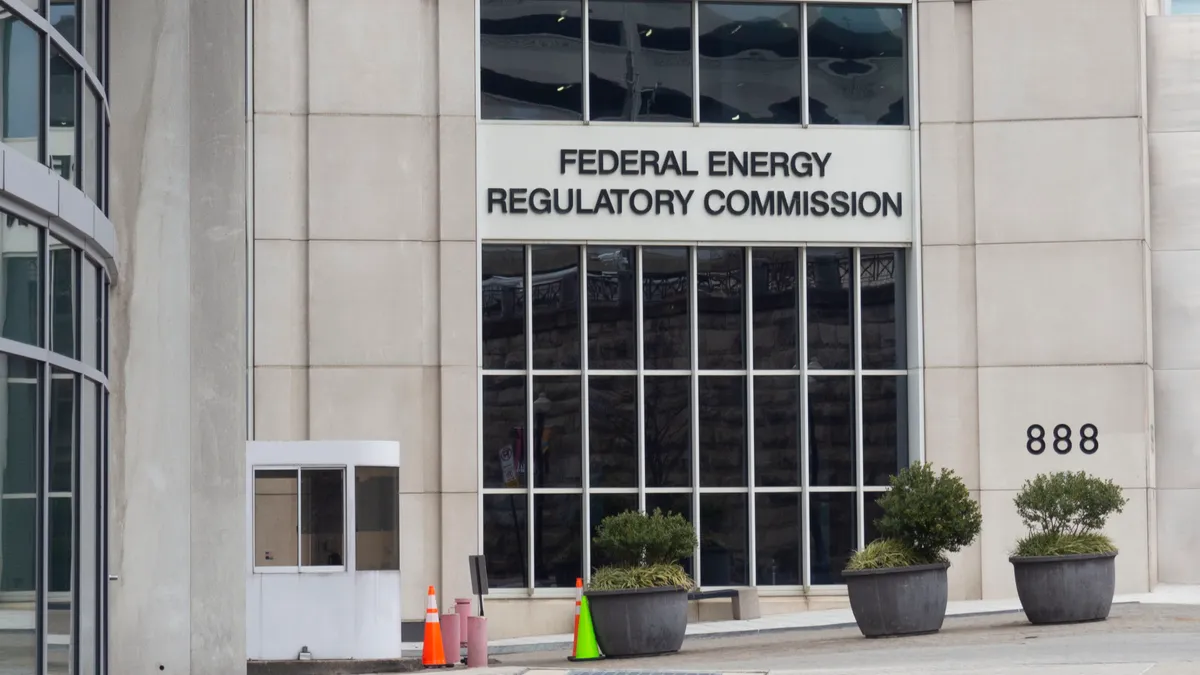The White House on Tuesday claimed authority over the Federal Energy Regulatory Commission and other independent agencies.
FERC and other independent agencies, such as the U.S. Securities and Exchange Commission, must submit proposed and final significant regulatory actions for review by the Office of Management and Budget’s Office of Information and Regulatory Affairs under an executive order issued by President Donald Trump.
The independent regulatory agencies exercise substantial executive authority without adequate accountability to the president, including issuing regulations without review by the White House, according to the executive order.
“These practices undermine such regulatory agencies’ accountability to the American people and prevent a unified and coherent execution of federal law,” Trump said in the executive order.
FERC Chairman Mark Christie and other heads of independent agencies will consult with and coordinate agency policies and priorities with the directors of OMB, the White House Domestic Policy Council and the White House National Economic Council, according to the executive order.
The OMB director will “consult with independent regulatory agency chairmen and adjust such agencies’ apportionments by activity, function, project, or object, as necessary and appropriate, to advance the president’s policies and priorities,” the executive order states.
The OMB’s director will set performance standards and management objectives for independent agency heads and report to the president on their performance and “efficiency” in meeting the standards and objectives, according to the executive order.
Christie and other independent agency chairmen will submit agency strategic plans to the OMB director for clearance before they are finalized, according to the executive order.
It is unclear how the executive order will affect FERC, partly because of unique language in the Department of Energy Organization Act that created the agency, according to William Scherman, a partner at Vinson & Elkins and former FERC general counsel. A provision in the act bars anyone at DOE from directing FERC’s actions, he said Wednesday, noting that an executive order cannot override a statute.
“How that plays out in applying this executive order remains to be seen,” Scherman said.
FERC has five commissioners: Chairman Christie and Lindsay See, who are Republicans, and Willie Phillips, David Rosner and Judy Chang, who are Democrats. Christie’s term ends June 30 and Phillips’ term ends a year later. The three other FERC members have terms that expire in following years.
FERC has 15 planned regulations in the pre-rule and proposed rule stages, including proposals dealing with transmission incentives and dynamic line ratings, according to the Office of Information and Regulatory Affairs.
White House claims authority to fire agency members
Separately, the Trump administration contends it has the authority to remove members of the Federal Trade Commission, the National Labor Relations Board and the Consumer Product Safety Commission, according to a Feb. 12 letter to Sen. Dick Durbin, D-Ill., from Sarah Harris, acting solicitor general.
The Supreme Court held in a 2020 decision that tenure protections for members of independent agencies are limited to agencies that lack "substantial executive power,” Harris said. The Department of Justice intends to urge the Supreme Court to overturn the 1935 Humphrey’s Executor precedent that provides tenure protection to agency members, according to Harris.
Although the letter does not mention FERC, the agency could be affected, according to lawyers with Jenner & Block.
In comparison to the NLRB, FERC’s statute offers the president more flexibility on removal for cause because cause is defined under the DOE Organization Act to include “inefficiency” in addition to neglect and malfeasance, Anand Viswanathan, Zachary Schauf, Emanuel Powell III, Rick Stepanovic and John Estes said Tuesday in a blog post.
“Might an alleged failure to implement DOGE policies or the Executive Order’s personnel reform directives be deemed ‘inefficiency’?,” they asked. “Might we see energy policy disagreements between the President and a FERC Commissioner characterized by the President as ‘inefficiency’?”
There could be regulatory risk if the president fired a FERC member while Humphrey’s Executor is on the books, the Jenner & Block attorneys said.
“Litigants might challenge subsequent orders on the ground that the replacement commissioner’s vote was invalid,” they said.
If the Supreme Court ends the Humphrey’s Executor precedent, there will likely be more frequent changes in FERC’s composition, the attorneys said.















